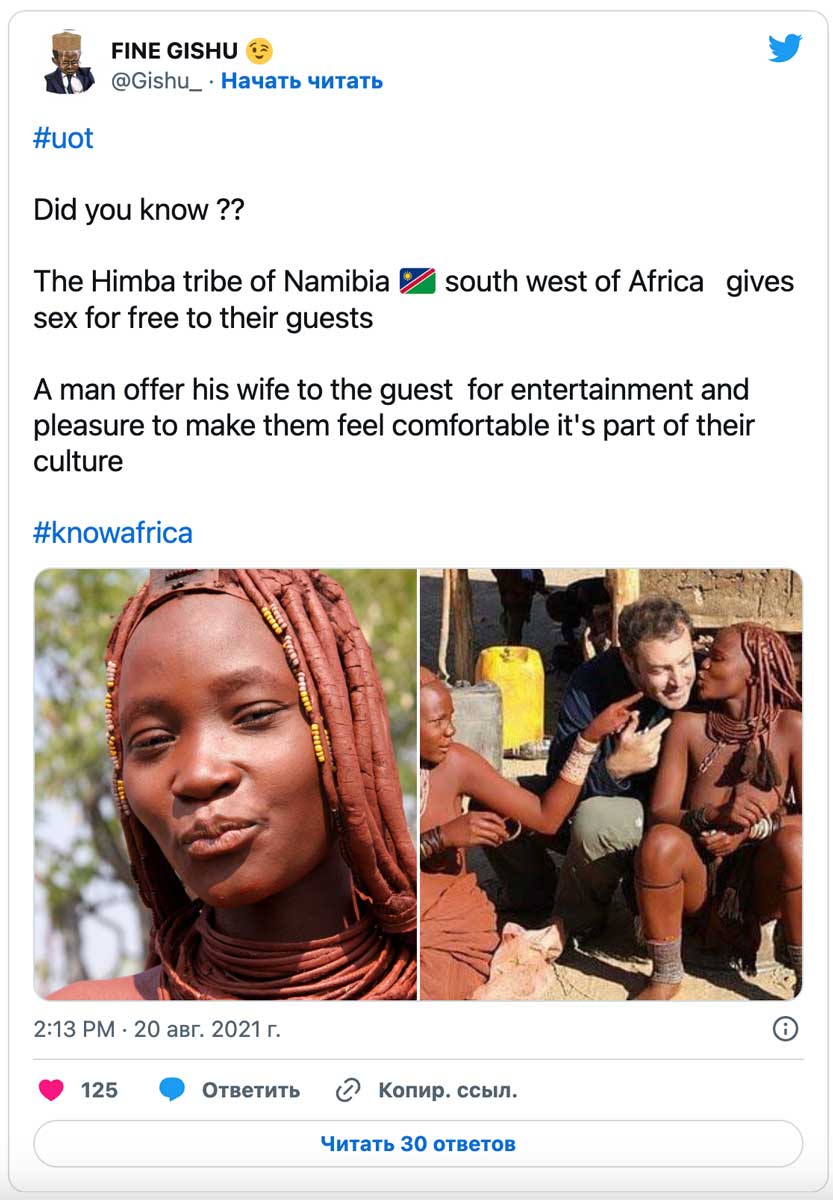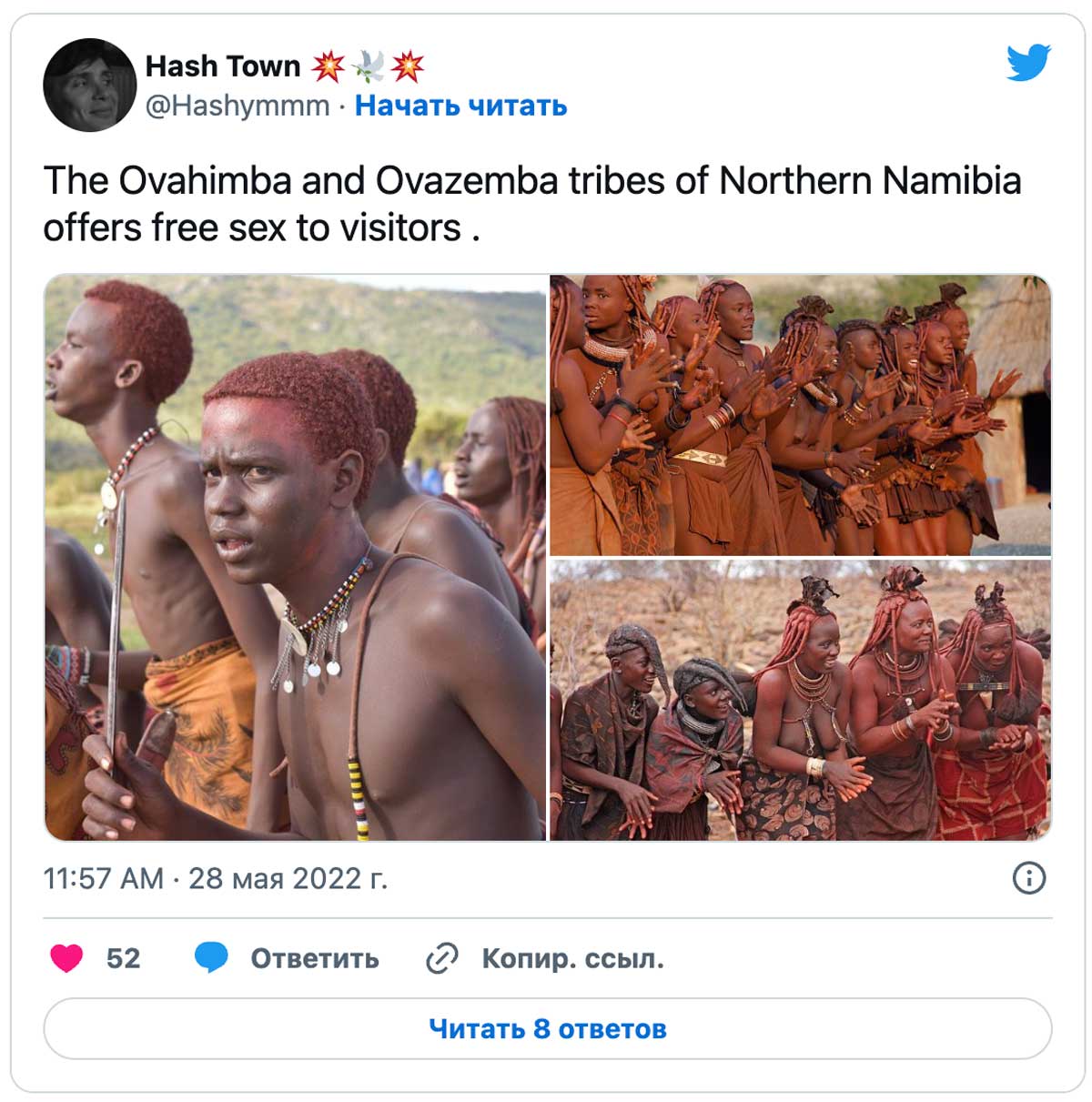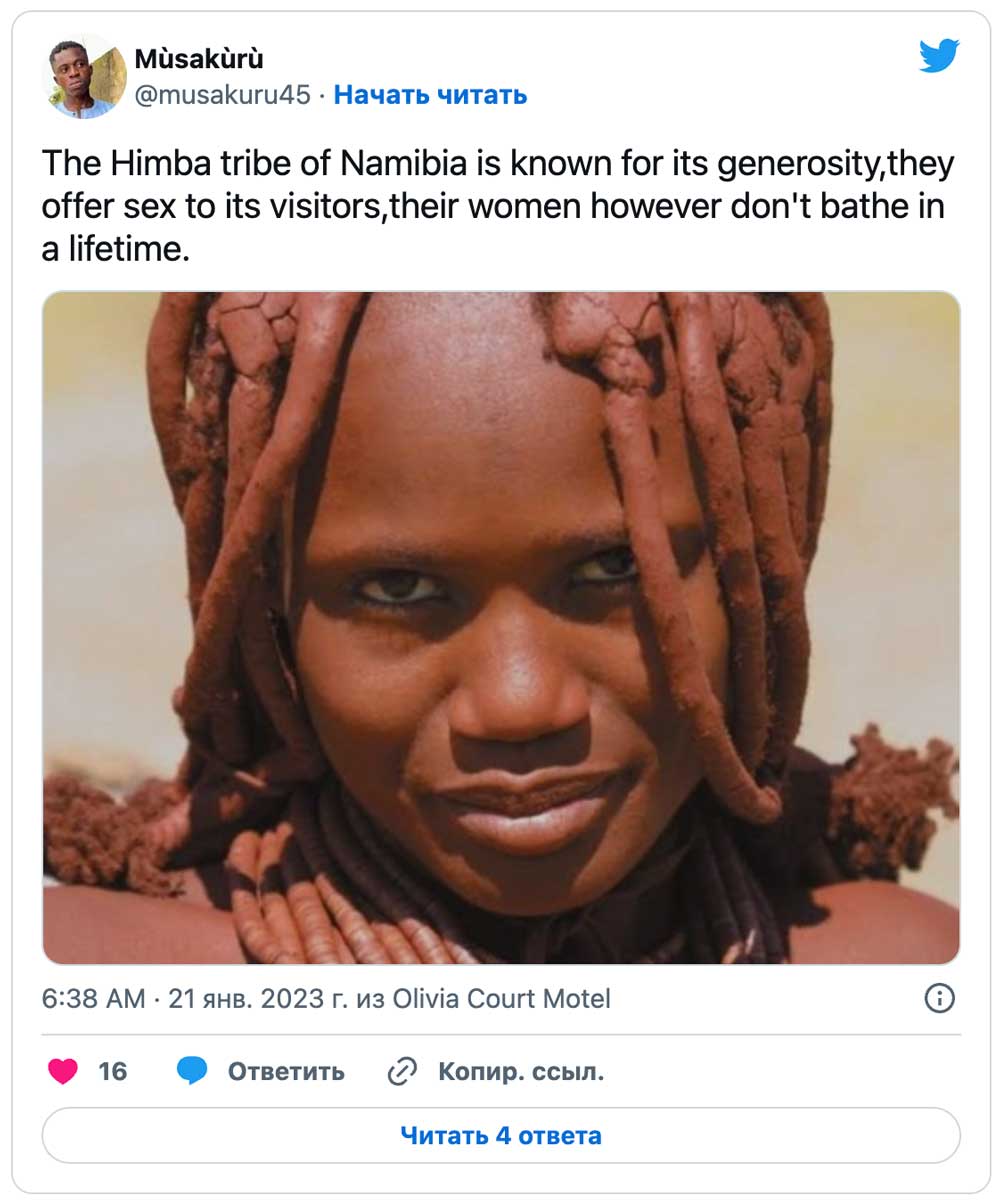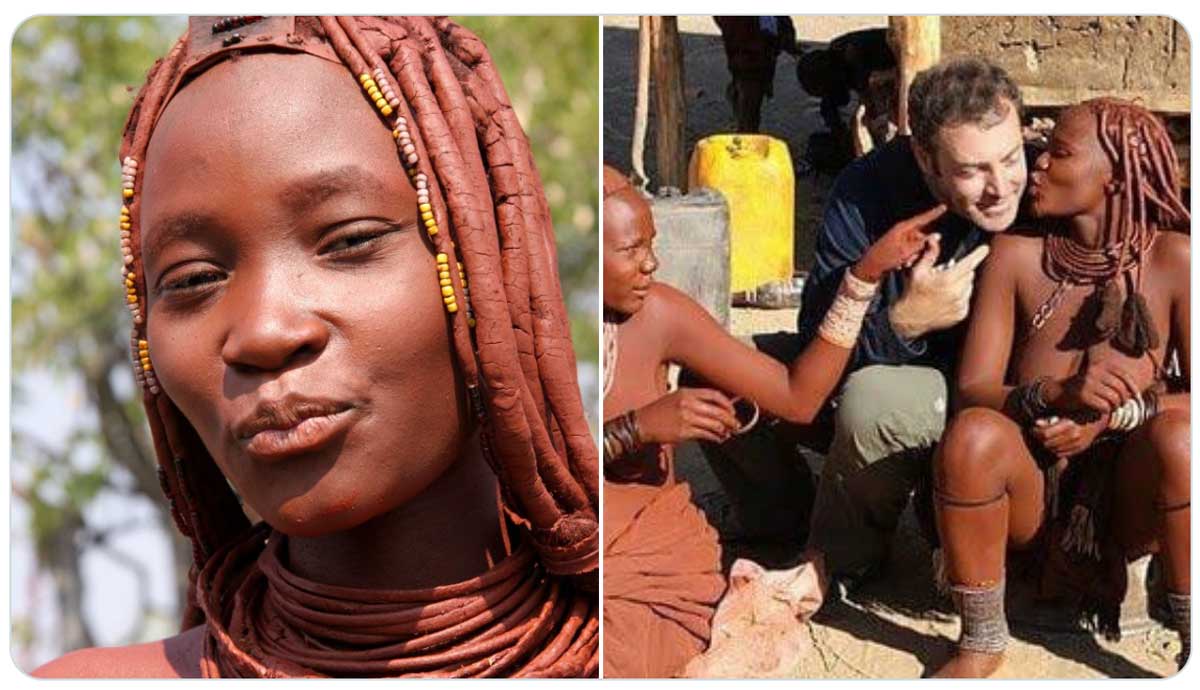The Ora tribes of the Ovahimba and Ovazimba tribes in the Kunene and Omusati districts in northern Namibia have a preserved culture that has not succumbed to Western influence and agitation. With a population of over 50,000, the women take care of daily cow milking, childcare, and other extensive duties while the men hunt, sometimes away for long periods.
The wealth of these nomads is determined by the number of livestock a person owned.
The practice of offering a wife to a guest is not supported anywhere except in the Kunene and Omusati regions of northern Namibia. People are polygamous and girls marry as soon as they reach puberty. They resist the trappings of modern life.

You cannot ignore their red skin. The red color of their skin is called outsize paste (a combination of milk fat, omuzumba scrub, and ochre) and its function is to protect their skin from the sun and insect bites. They are also guided by the belief that red means “earth and blood”. Instead of bathing, women take smoke baths and apply aromatic resins to their skin.
Honor is relative
Give credit where it is due: This saying is applied in many different ways in this tribe. When the visitor knocks on the door, the man shows his approval and pleasure to see his guest by showing him the attitude of Okudjepis Omukazendu. This practice means that his wife is given to a guest for the night while the man sleeps in another room. In case there is no free room, her husband will sleep outside.
This tradition, passed down from generation to generation, has its “benefits” in the community: it reduces jealousy and promotes relationships. Women have virtually no say in decision-making. In the first place is obedience to the requirements of the husband.
She can refuse to sleep with him, but she must sleep in the same room as the guest.
She also has the right to give her friends to her husband when they visit her, but this is rare.

Although the whole world may attack their cultural practices, which they have maintained for a long time, people are proud of their way of life. This is a culture that many might consider quite unconventional, but one that the Ovahimba and Owazimba are extremely proud of. Some decide to call it a “wife swap”. For many years, he caused heated debate in the country.
Back in 2014, the Namibian legislature attempted to legislate this cultural practice. In a country with one of the highest rates of HIV infection in the world, this raised many questions. But the Ovahimba and Owazimba defend their cultural practice, saying it strengthens their friendship and prevents promiscuity.

“This culture gives us unity and a sense of community,” said Kazeongere Cheundo, an MP and vice chairman of the opposition Turnale Democratic Alliance in Namibia.

